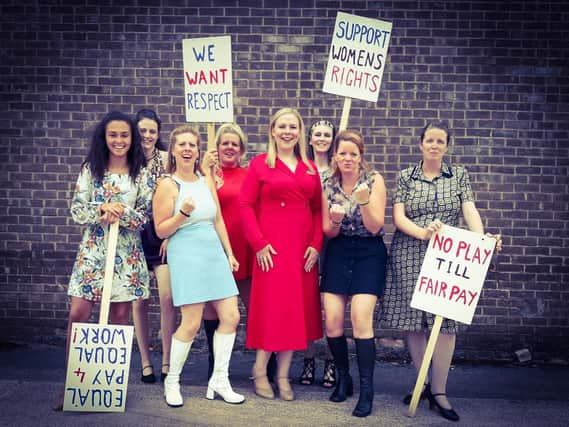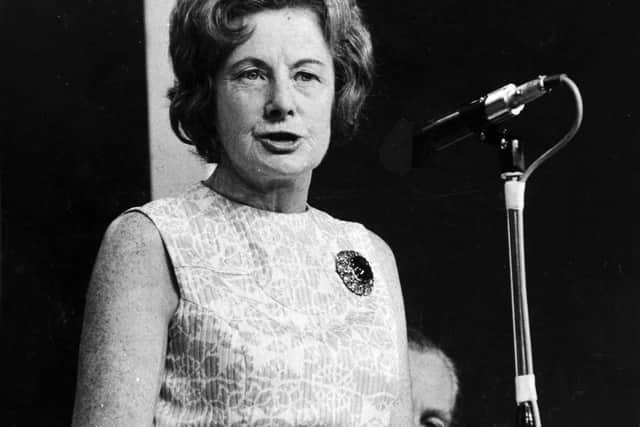A famous fight for equal rights


This year is the 50th anniversary of the dispute that led the TUC to accept the principle of equal pay for women which, in turn, led the Equal Pay Act of 1970.
It was started by 187 car seat machinists at the Ford factory in Dagenham when the management attempted to restructure their pay grades. It was like lighting the blue touch paper for the start of a dispute that was to rumble on for weeks and change the face of industrial relations forever.


Advertisement
Hide AdAdvertisement
Hide AdHarold Wilson was Prime Minister and Barbara Castle Minister for Employment and Productivity when the Ford women became so incensed by the trivialisation of their plight, that instead of simply arguing the case for regrading as the skilled workers there undoubtedly were; they widened their campaign to cover the whole issue of equal pay.
It shook Ford to the core.
The saga began when the women, who sewed seat covers for the Cortina and other Ford ranges, were told they were basically unskilled and put in Category B. It put them on the same footing floor sweepers, despite the fact the machinists had to undertake two years of training.
The women argued they should be on Grade C '“ a category designed for more skilled production jobs. Bu even in Grade C they would be paid 15% less than their male counterparts. It was common practice in the 1960s for companies to pay women significantly less even if they were doing exactly the same jobs as men.
The women picked a fight not only with the Ford management, but they had to contend with the blatant sexism for their own union colleagues. Inspired by the machinists, women trade unionists founded the national Joint Action Campaign Committee for Women's Equal Rights, and in May 1969, 1,000 people attended a Trafalgar Square demonstration.
Advertisement
Hide AdAdvertisement
Hide AdThe wagon was rolling and a year later, the government introduced the Equal Pay Act which prohibited inequality of treatment between men and women in terms of pay or condition of employment.
The story of the indomitable spirit of the Ford women was dramatised in the 2010 film Made in Dagenham which starred Sally Hawkins as Rita O'Grady, the reluctant leader of the strike.
Four years later the story was turned into a West End show and Made in Dagenham, The Musical, with a book by Richard Bean, opened to critical acclaim at the Adelphi Theatre. Like the film the show highlights the strains on family relationship and the hardships caused by the strike, especially when all the Ford workers were laid off when the production line ran out of seat covers.
Next week, Made in Dagenham, The Musical, is being performed by Dronfield Musical Theatre Group at the town's Civic Hall and already the power of the story is giving a buzz to the 40 strong cast.
Advertisement
Hide AdAdvertisement
Hide AdDirector and choreographer Andy Hibbert said: 'Made in Dagenham is a truly uplifting story about friendship, love and the importance of fighting for what is right.'
Funny, touching and timeless, Made in Dagenham shows how ordinary people can do extraordinary things when they stand together. Which is exactly what the Ford machinists at Dagenham did. And won.
Made in Dagenham, The Musical. Dronfield Civic HallCentre, Wednesday to Saturday (October 10-13) at 7.30pm (Saturday matinee at 2.30pm).Tickets: 01246 416364.